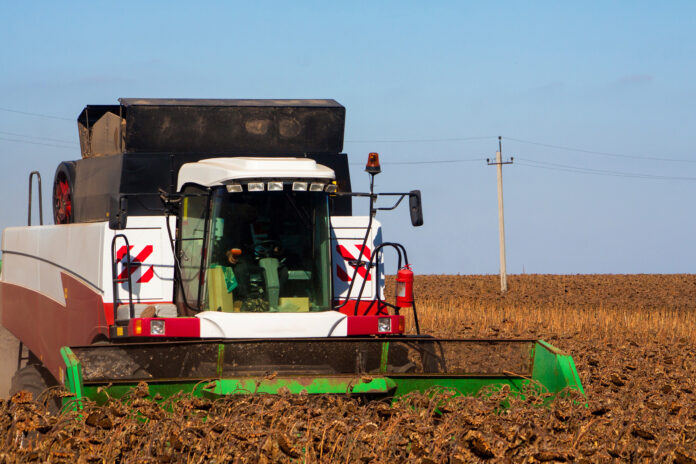The European Commission has suppressed without prior notice the associated aid that it had been carrying out for almost 20 years for the production of sunflower and rapeseed, two essential crops in recent months in Spain as they have become the most appropriate alternative to alleviate the general shortage of cereal since the war in Ukraine began, with more than 20 million tons blocked in the Black Sea ports.
The decision, which has caught the Ministry of Agriculture by surprise, was advanced this week by the Secretary General of Agriculture and Food, Fernando Miranda, to the autonomous communities and agrarian organizations, who consider the news a “real setback”, especially for communities such as Castilla y León, where 41% of the production is found, followed by Andalucía (28%) and Castilla-La Mancha (22%) for a total area harvested last season throughout Spain of 724,471 hectares. Specifically, in the first producing region, the area of oilseeds is around 250,000 hectares each year, although this year it has increased to 452,844, precisely due to the changes allowed by Brussels in the face of markets depleted by the international context.
In recent years, the associated aid for oilseeds (both sunflower and rapeseed) was around 40 euros per hectare, although there was a limit of hectares (50) after which this aid was no longer received. For the period of the new CAP (2023-2027) it was even noted in the previous reports that there would be a rise to 60 euros and the production cap would be eliminated, but now all the conditions have been eliminated.
“There is no reasonable explanation for this decision and the blow is terrible for our farmers,” explains Donaciano Dujo, president of Asaja Castilla y León. This agrarian leader recalls that precisely due to the import crisis due to the war, Europe had allowed this year the use of fallow land in Spain -600,000 hectares- to plant alternative productions in crop rotation due to the lack of cereal. Thus, he regrets that “it is a totally wrong decision and made by someone who does not step on the ground.” The position is also not explained from the environmental point of view because the sunflower “is a crop that complies with all regulations in this regard and also serves, like rainfed crops in general, for sheltering birds, quails, hares… .”.
Spain annually imports from Ukraine (the world’s leading producer of sunflower seeds, flour and oil) almost 30% of the corn it needs, more than 2.8 million tons per year, for a value of 460 million euros (second world destination of Ukrainian exports in this sector). Ukraine’s dependence reaches 70% on sunflower oil (about 600,000 tons a year), as well as 17% on wheat, 31% on vegetable oil cakes and 15.4% on grain legumes.
Before the outbreak of the war, each month approximately ten ships loaded with sunflower oil used to arrive at the ports of Barcelona, Sagunto, Cartagena, Malaga, Seville, Vigo or Bilbao. Many other food industries that contain it depend on this product, such as oil bottled, precooked, sauces, snacks and appetizers or margarines, which means that each Spaniard consumes an average of 20 kilos a year while Europeans stay in 10, by introducing rapeseed or palm oil, practically rejected in Spain.
In response to this decision from Brussels, the plan that the Ministry of Agriculture wants to distribute the 45 million euros provided for the aid associated with this crop to those “sunflower regions”, considering as such practically the entire national dryland. For Donaciano Dujo, this proposal means “diluting” these aids, with a minimum increase for all farmers, regardless of whether or not they are sunflower growers. “This would be a coffee system for all, which will leave cultivation without a real incentive; something unfair and also dangerous because historically we are deficient in these productions.” In this way, Asaja proposes to the Ministry that “arbitrate and provide direct support measures for these crops so that they remain in the areas to which they have always been attached.”
The UPA organization is of the same opinion, which has rejected “outright” these intentions, considering them “unfair and illogical, especially in a situation of war in Europe like the one we are experiencing.” As they explain, the elimination of the aid is justified by the fact that the European Commission does not consider these crops as protein crops (which has a bag of 2% of the budget) and they would have to enter the 13% package, but this item is “fully distributed “, so it would be necessary to remove aid to other sectors to maintain those of sunflower and rapeseed.
This organization wants aid for oilseeds to continue to be seen as an important part of the National Protein Plan: “This is justified by the protein value of sunflower and rapeseed cake. In this case, the aid would be proportional to the average contribution per hectare to the production of protein for animal consumption in relation to an average crop of a protein crop”. In any case, if the refusal by the European Commission is maintained, UPA proposes to increase the unitary support for legumes, protein crops and legumes to 90 and 120 euros per hectare, respectively.
This organization recalls that “Spain and Europe are very deficient in the production of vegetable protein and therefore strategies are being articulated to increase the production of crops such as protein and oilseeds.” Associated aid is “a tool for doing politics”, they say from UPA, “supporting farmers who bet on these crops”.
UPA believes that the Spanish agri-food sector needs to reduce its dependence on foreign protein. “Farmers are in a process of adapting to the new environmental demands, where the protein sector plays an important role. The current tensions in the fertilizer markets also provide very strong reasons for not eliminating these aids,” they conclude.
Conforms to The Trust Project criteria








